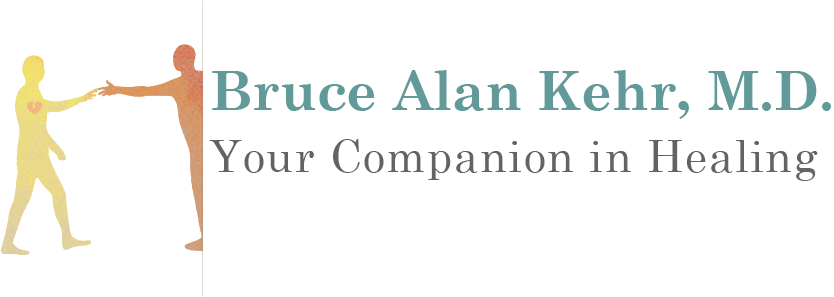In my blog Why Am I Experiencing Memory Loss, I discussed the difference between mild memory loss and dementia. In this blog, I’ll be discussing the different signs and types of dementia including Alzheimer’s Disease, Vascular dementia, Lewy Body dementia, and other faces of the disease.
Signs of Dementia
Each person’s experience with dementia can be unique. It can vary from having only one or two symptoms to all of the following symptoms. The symptoms can also vary in severity. Sometimes symptoms are mild for a long time and only severe after a specific event, such as a stroke. The following are eight key symptoms of dementia that may cause concern.
- Memory loss – this includes things such as forgetting the current president of the United States or the address where one has lived for some time.
- Difficulty completing familiar tasks – for example getting dressed in the morning or paying a bill.
- Problems communicating – such as using the wrong word or forgetting simple words or being at a loss to communicate feelings and thoughts.
- Disorientation – such as getting lost walking home from a store that is only a few blocks from one’s house.
- Problems with abstract thinking – such as managing finances (creating a budget or handling money transactions).
- Misplacing things – forgetting where you left items and not being able to retrace your steps to eventually find them.
- Mood changes – for example, swings in your mood from feeling very happy to very sad without an apparent reason.
- Personality changes – becoming angry, suspicious or fearful with loved ones or close friends. This may also include outbursts of aggression.
It’s also worth mentioning that some conditions may cause people to be more likely to develop dementia. These include: poor nutrition and chronic depression, genetics, and multiple concussions. In several studies of football players and professional boxers, repeated concussions and traumas to the head have shown an association with a greater risk for the development of dementia symptoms as they age. Dementia from concussions and traumatic brain injuries are irreversible.
Types of Dementia
Now that you know the signs that are directly related to dementia, it’s important to know some of the common types of dementia.
Alzheimer’s Disease
There are many diseases and conditions that could cause or be associated with the symptoms of dementia but Alzheimer’s disease is the leading cause. Alzheimer’s accounts for approximately 70% of all cases of dementia in the United States. According to the Alzheimer’s Association nearly 5.4 million Americans are currently living with the disease and the biggest risk factor is advanced age (60 or older).
Dementia caused by Alzheimer’s is progressive, which means the symptoms will gradually worsen over time. Alzheimer’s develops slowly over a span of 20 or 30 years, and the diagnosis is often made when the disease process has been underway for many years. Genetic, environmental, and lifestyle factors may all play a role in the progression of brain cell damage and death over a period of decades.[i] It is eventually a fatal disease. In fact, Alzheimer’s disease is the sixth leading cause of death in the U.S. for adults
Familial Alzheimer’s Disease
One rare form of Alzheimer’s disease is known to be genetic. This is called Familial Alzheimer’s disease (FAD). FAD accounts for between 2-3% of all cases of Alzheimer’s and usually has an earlier onset with symptoms developing in their 30’s or 40’s. Genetic testing can determine if one has the gene for FAD.
Vascular Dementia
The second most common type of dementia is vascular dementia, which can occur after a series of small strokes. It is caused by brain damage from impaired blood flow to the brain. One can develop vascular dementia after a stroke blocks an artery in the brain, but strokes don’t always cause vascular dementia. Vascular dementia can result from other conditions that damage blood vessels and reduce circulation to the brain, such as chronic high blood pressure, high cholesterol, and diabetes. Vascular dementia is generally irreversible, although lifestyle modifications and medication that normalize these three diseases can slow the progression.
Lewy Body Dementia
Dementia with Lewy bodies is a brain disorder linked to abnormal proteins in the brain. These deposits of proteins, called Lewy bodies, change the normal chemical make-up that allows your brain to function properly. The presence of Lewy bodies leads to problems with thinking, movement, behavior, and mood – all symptoms of dementia.
Other Faces of Dementia
Approximately 20% of the types of dementia are reversible and not progressive. Dementia symptoms that stem from nutritional deficiencies, such as a lack of B vitamins, are reversible, preventable, and generally mild. Not drinking enough liquids and not getting enough thiamin (vitamin B-1), which is common in people with alcoholism, and not getting enough vitamins B-6 and B-12 in your diet can all also cause dementia-like symptoms.
Chronic and severe depression can also cause dementia-like symptoms which are also reversible. Symptoms that are common in depression and dementia include:
- Loss of interest in activities and hobbies.
- Social withdrawal
- Trouble concentrating.
- Impaired thinking
- Memory problems
- Sleeping too much or too little
A careful diagnostic process by a psychiatrist is necessary to determine if the symptoms the individual is experiencing are signs of depression, dementia, or both. This is why it’s so important to seek treatment when feeling depressed or noticing the signs of dementia.
Unfortunately, most types of dementia such as Alzheimer’s, Vascular, and FAD are irreversible and there is no known cure. However, there is still much about the progression of dementia and the different diseases and conditions that cause it that are still unknown. Scientists and researchers have been ramping up their efforts to stem and cure diseases that cause dementia. In the meantime, there are some interventions that can slow the progression of dementia symptoms and the symptoms may even be reversible. Recent research has pointed toward some promising nutritional and lifestyle interventions.[ii] [iii] There is hope.
Don’t miss next week’s blog as we walk you through the tools and ways psychiatrists determine a diagnosis and type of dementia.
Sources:
- https://www.ncbi.nlm.nih.gov/pmc/articles/PMC4428475/
- https://www.ncbi.nlm.nih.gov/pmc/articles/PMC4202787/
- https://www.ncbi.nlm.nih.gov/pmc/articles/PMC4221920/
For more information, including how you can order the Build Yourself a Healthier Brain mini-book, click here.
A Tip to Untangle Your Brain™
Disclaimer ©2017 Untangle Your Life, LLC




